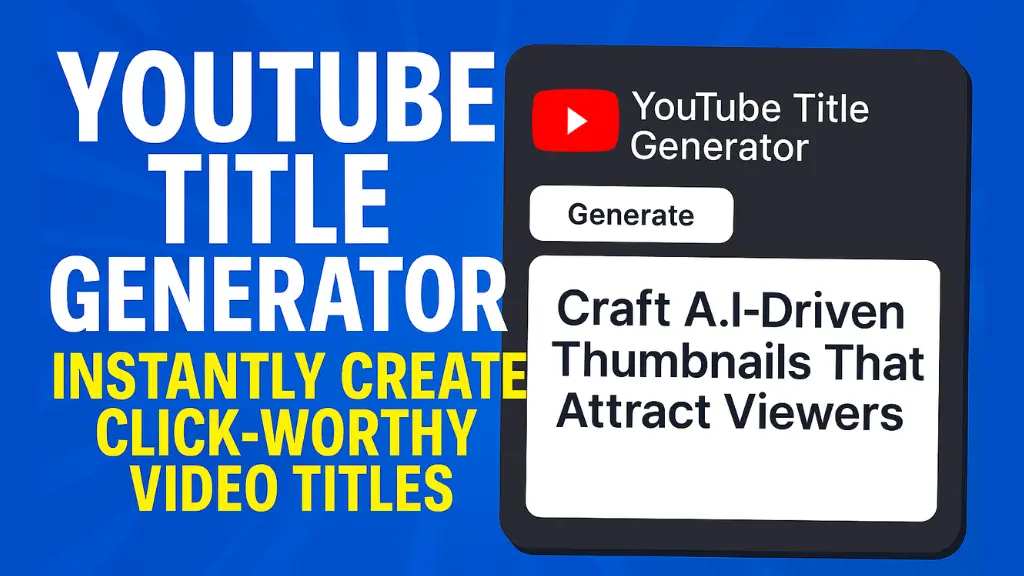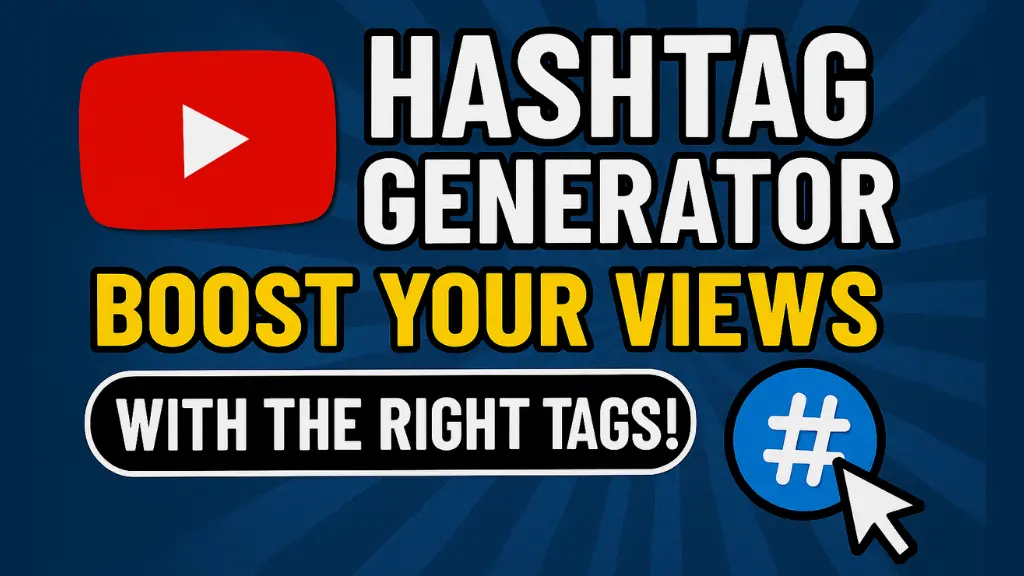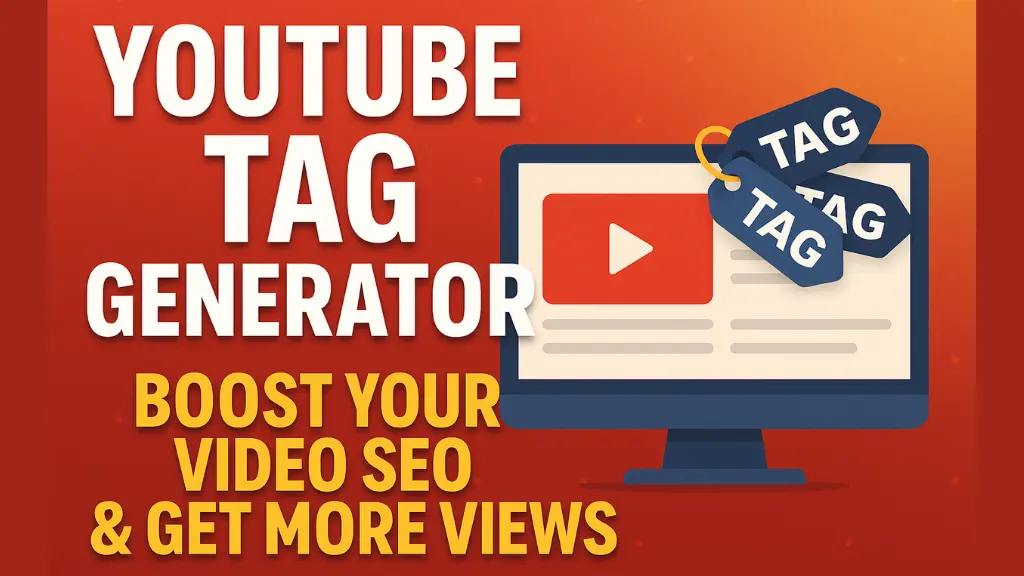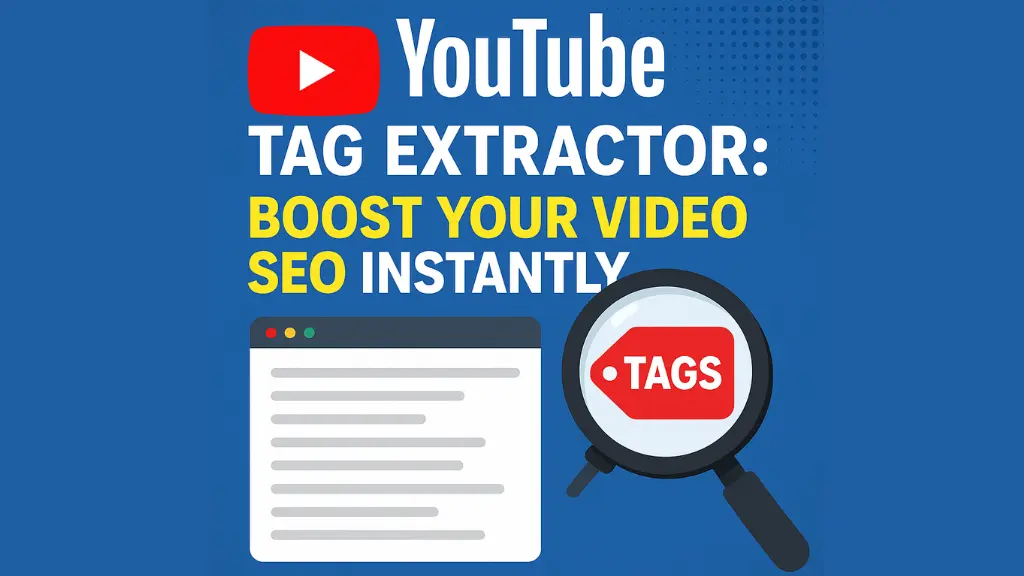
Meta Tag Generator
A Meta Tag Generator is an online tool designed to help website owners, developers, and digital marketers create meta tags quickly and efficiently. Meta tags are snippets of HTML code that provide metadata about a webpage. They are embedded in the section of a webpage and play a crucial role in search engine optimization (SEO), social media sharing, and overall website functionality.
A Meta Tag Generator is an online tool designed to help website owners, developers, and digital marketers create meta tags quickly and efficiently. Meta tags are snippets of HTML code that provide metadata about a webpage. They are embedded in the <head> section of a webpage and play a crucial role in search engine optimization (SEO), social media sharing, and overall website functionality.
Key Features of a Meta Tag Generator:
-
Automated Meta Tag Creation:
-
The tool simplifies the process of generating meta tags by allowing users to input basic information, such as the page title, description, and keywords. It then automatically generates the necessary HTML code.
-
-
Customizable Meta Tags:
-
Users can customize meta tags for specific purposes, such as:
-
Title Tag: The title of the webpage that appears in search engine results.
-
Meta Description: A brief summary of the page's content, often displayed in search engine snippets.
-
Meta Keywords: Keywords relevant to the page's content (though less important for SEO today).
-
Open Graph Tags: For optimizing how content appears when shared on social media platforms like Facebook.
-
Twitter Card Tags: For enhancing how links are displayed on Twitter.
-
Viewport Tag: Ensures proper rendering on mobile devices.
-
Robots Tag: Instructs search engine bots on how to crawl and index the page.
-
-
-
SEO Optimization:
-
Meta tags are critical for SEO, as they help search engines understand the content and purpose of a webpage. A Meta Tag Generator ensures that the tags are properly formatted and optimized for search engines.
-
-
Social Media Integration:
-
The tool often includes options to generate Open Graph and Twitter Card tags, ensuring that shared links look appealing and professional on social media platforms.
-
-
User-Friendly Interface:
-
Most Meta Tag Generators have a simple, intuitive interface that requires no technical expertise. Users can input their desired information, and the tool generates the code instantly.
-
-
Copy-and-Paste Functionality:
-
Once the meta tags are generated, users can easily copy the HTML code and paste it into their website's
<head>section.
-
-
Free and Accessible:
-
Many Meta Tag Generators are available for free online, making them accessible to anyone who needs to create or update meta tags.
-
Benefits of Using a Meta Tag Generator:
-
Saves Time: Automates the process of writing meta tags manually.
-
Improves SEO: Ensures that meta tags are properly structured and optimized for search engines.
-
Enhances Social Sharing: Makes content more shareable and visually appealing on social media.
-
Reduces Errors: Minimizes the risk of coding mistakes that could affect website performance.
How to Use a Meta Tag Generator:
-
Enter the required details, such as the page title, description, and keywords.
-
Select additional options, such as Open Graph or Twitter Card tags, if needed.
-
Click "Generate" to create the meta tags.
-
Copy the generated HTML code and paste it into your website's
<head>section.
Popular Meta Tag Generator Tools:
-
Meta Tags Generator by MySmallSEOTools
-
SEOPressor Meta Tag Generator
-
WebCode.me Meta Tag Generator
-
SiteLuck Meta Tag Generator
In conclusion, a Meta Tag Generator is an essential tool for anyone managing a website. It simplifies the process of creating and optimizing meta tags, ensuring better visibility in search engines and improved social media sharing. Whether you're a beginner or an experienced developer, using a Meta Tag Generator can save time and enhance your website's performance.

Nayan Dhumal
Blogger and Web Designer
Hey, I’m Nayan Dhumal—a passionate Blogger, Web Designer, and the founder of mysmallseotools.com, a dedicated SEO tools website. Over the past 5 years, I’ve immersed myself in the world of blogging, sharing insights on SEO, digital marketing, and strategies to make money online. My journey has been fueled by a love for creating valuable content and designing tools that empower others to succeed in the ever-evolving digital landscape.












